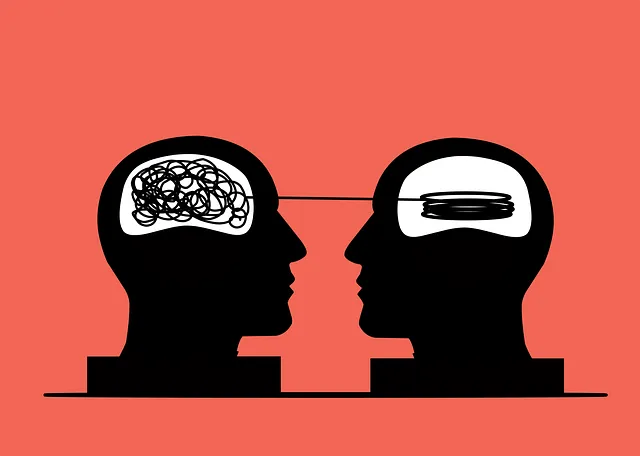In today's diverse society, mental healthcare providers must be culturally sensitive to offer effective services like those provided by Kaiser Permanente's behavioral health phone number in Castle Rock. Cultural competency training equips professionals to respect differences, avoid biases, and integrate tailored stress reduction methods for diverse populations. This inclusive approach improves patient outcomes, fosters trust, and promotes open communication, addressing mental health concerns more successfully. By understanding cultural nuances, healthcare providers can adapt their styles to enhance trust and engagement, empowering patients from varied backgrounds. Effective strategies include language navigation, cultural barrier overcoming, Self-Care Routine Development, and open conversations about stigma reduction, ultimately enhancing care quality at Kaiser Permanente's behavioral health phone number in Castle Rock. Proven case studies highlight the positive impact of culturally sensitive mental healthcare initiatives on access, inclusion, engagement, community partnerships, and clinical outcomes.
Cultural sensitivity is a cornerstone in modern mental healthcare, ensuring equitable and effective treatment for all. In an increasingly diverse society, understanding cultural nuances is vital to address mental health disparities. This article explores the importance of cultural sensitivity in practice, focusing on strategies employed by organizations like Kaiser Permanente Behavioral Health Phone Number Castle Rock to enhance culturally competent care. We delve into successful case studies, highlighting the transformative power of cultural sensitivity in improving patient outcomes.
- Understanding Cultural Diversity in Mental Healthcare
- The Role of Cultural Sensitivity in Effective Treatment
- Challenges in Providing Culturally Competent Care
- Strategies for Improving Cultural Sensitivity at Kaiser Permanente Behavioral Health Phone Number Castle Rock
- Case Studies: Successful Implementation of Cultural Sensitivity in Practice
Understanding Cultural Diversity in Mental Healthcare

In today’s diverse society, mental healthcare providers must embrace cultural sensitivity to offer effective and equitable services. Understanding cultural diversity goes beyond recognizing ethnic backgrounds; it involves comprehending a patient’s values, beliefs, traditions, and unique experiences that shape their mental wellness. At organizations like Kaiser Permanente, behavioral health phone numbers in areas such as Castle Rock highlight the commitment to accessible care, but ensuring effectiveness requires cultural competency.
Healthcare provider cultural competency training is paramount in navigating this landscape. It equips professionals with the knowledge and skills to recognize and respect differences, avoiding assumptions or biases that could hinder progress. By integrating stress reduction methods tailored to diverse populations, mental healthcare can become more inclusive and successful. This approach not only improves patient outcomes but also fosters a sense of belonging and trust, promoting open communication essential for addressing mental health concerns effectively.
The Role of Cultural Sensitivity in Effective Treatment

Cultural sensitivity is a cornerstone of effective mental healthcare practice, especially when serving diverse communities like those around the Castle Rock area where Kaiser Permanente behavioral health phone number is readily accessible. Understanding and respecting cultural differences can significantly enhance patient outcomes. For instance, recognizing that communication styles vary across cultures enables healthcare providers to adapt their approach, fostering better engagement and trust with patients.
This sensitivity also plays a vital role in boosting confidence among individuals from diverse backgrounds. By incorporating cultural awareness into treatment plans, mental health professionals can offer tailored support for unique challenges related to emotional regulation, as demonstrated by various communities’ distinct coping mechanisms and expressions of distress. Such an inclusive practice not only respects but also empowers patients, ensuring they receive culturally competent care that addresses their specific needs.
Challenges in Providing Culturally Competent Care

Providing culturally competent care in mental healthcare presents unique challenges. In a diverse society like Castle Rock, where individuals from various ethnic, cultural, and linguistic backgrounds seek support through services like the Kaiser Permanente behavioral health phone number, understanding and respecting these differences are paramount. Cultural sensitivity requires mental health professionals to recognize and appreciate the influence of culture on an individual’s experiences, beliefs, and behaviors related to mental wellness.
One significant hurdle is ensuring effective communication. Language barriers can hinder the establishment of trust and understanding between patients and healthcare providers. Moreover, cultural nuances in expression and non-verbal cues might lead to misinterpretations. To address these challenges, professionals must be adept at utilizing interpreters, learning basic phrases in diverse languages, and being mindful of cultural differences in body language and communication styles. Incorporating practices such as Self-Care Routine Development for Better Mental Health and Emotional Healing Processes can facilitate this understanding and foster an environment where patients feel seen, heard, and valued, ultimately enhancing the effectiveness of mental wellness coaching programs development.
Strategies for Improving Cultural Sensitivity at Kaiser Permanente Behavioral Health Phone Number Castle Rock

Improving cultural sensitivity at Kaiser Permanente behavioral health phone number Castle Rock involves several strategies tailored to embrace and integrate diverse communities. One key approach is to ensure that staff members represent a wide range of cultural backgrounds, allowing for deeper understanding and empathy towards varied patient experiences. Training programs focused on cultural competency can significantly enhance the ability of healthcare providers to offer effective support while respecting unique cultural beliefs and practices.
Additionally, implementing communication strategies that promote active listening and clear, non-judgmental dialogue is essential. Encouraging open conversations about mental illness stigma reduction efforts can foster a safe environment where patients feel comfortable expressing their experiences. These initiatives not only strengthen the connection between healthcare providers and patients but also lead to improved emotional regulation techniques, ultimately enhancing the quality of care at Kaiser Permanente behavioral health phone number Castle Rock.
Case Studies: Successful Implementation of Cultural Sensitivity in Practice

In various cultural contexts, the successful integration of cultural sensitivity into mental healthcare has been demonstrated through compelling case studies. For instance, a community-based program designed and implemented by Kaiser Permanente in Castle Rock, focusing on behavioral health services, has shown remarkable outcomes. This initiative involved tailored Mental Wellness Coaching Programs Development to meet the unique needs of diverse ethnic and cultural groups within the region. By incorporating traditional healing practices and incorporating them into evidence-based therapies, the program successfully addressed the specific mental health concerns of these communities.
The Castle Rock model underscores the importance of Cultural Sensitivity in improving access to quality Mental Health Education Programs. By recognizing and respecting cultural differences, healthcare providers can foster a more inclusive environment, enhancing patient engagement and treatment adherence. This approach not only improves clinical outcomes but also strengthens community partnerships, as evidenced by increased participation from underrepresented groups in mental wellness initiatives.
In addressing mental healthcare’s evolving landscape, particularly within organizations like Kaiser Permanente Behavioral Health Phone Number Castle Rock, prioritizing cultural sensitivity is paramount. The integrated strategies outlined in this article, from fostering a culturally competent environment to leveraging successful case studies, offer practical paths forward. By recognizing and respecting diverse cultural backgrounds, mental health professionals can enhance patient care, improve treatment outcomes, and create more inclusive settings that resonate with every individual seeking support.






